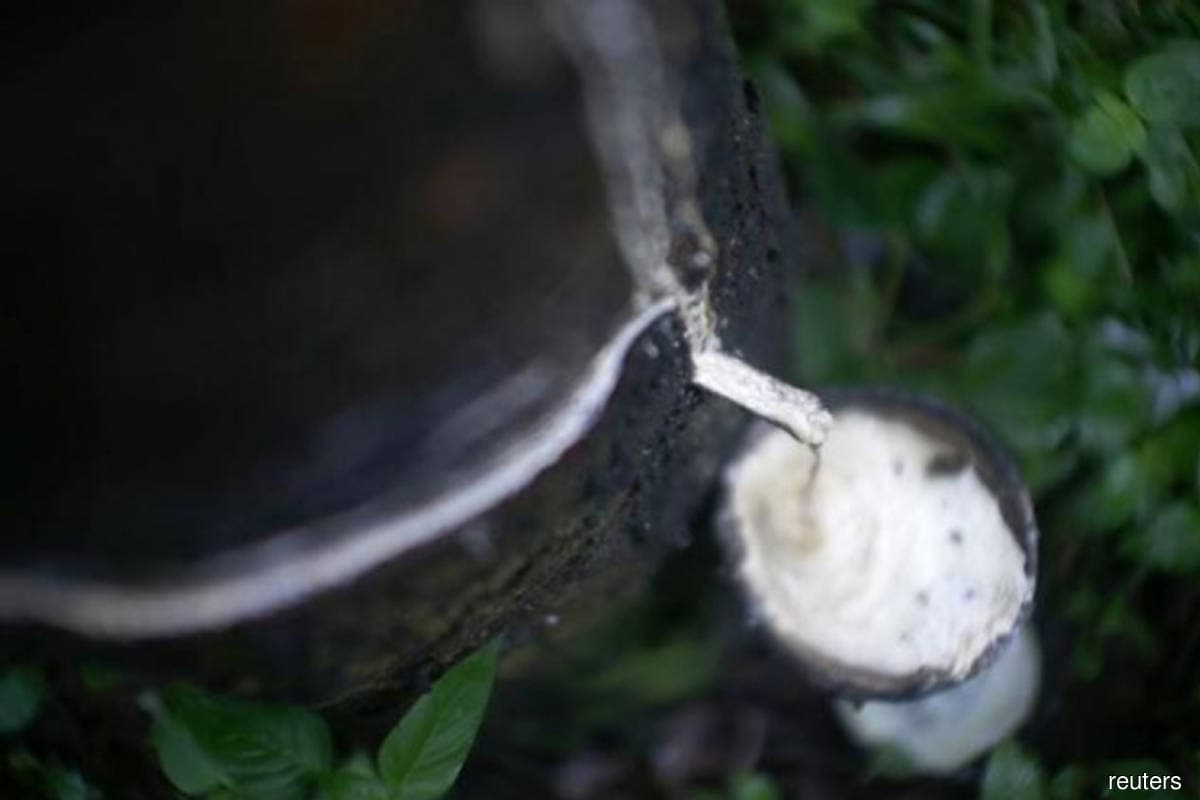
KUALA LUMPUR (Jan 15): The Ministry of Plantation and Commodities and the Malaysian Rubber Board will work with relevant ministries and agencies to create a more strategic policy to safeguard the welfare of rubber tappers and smallholders.
In a statement on Sunday (Jan 15), the ministry said that it understands the situation experienced by smallholders, especially during a drop in rubber prices, and will ensure that more thorough programmes and activities are implemented in order to ease the burden on these groups.
“The ministry is concerned about the issue of falling rubber prices and its impact on small rubber farmers and tappers across the country, especially in dealing with life when faced with the increasing cost of living,” it said.
It added that the drop in rubber prices is closely related to various factors including the sluggish global economic outlook, the increase in the supply of natural rubber, and the drop in the price of crude oil, which affects the demand for synthetic rubber compared to natural rubber in the manufacture of rubber products, concerns about United States-China trade relations, and uncertainty from the Russia-Ukraine conflict.
The ministry explained that regional market factors and global economic factors have a great influence on the movement of rubber prices in the market.
Malaysia also does not have a strong position as a producer to intervene unilaterally to increase the price of rubber in the international market, considering the country currently produces only 4% of the world's total rubber production, it said.
“However, in an effort to help rubber tappers and small rubber farmers, the ministry and the board have held a series of discussions involving various ministries and related agencies, to reduce the effects of the drop in rubber prices,” the statement said.
The ministry also outlined a number of existing measures taken by the government to help rubber farmers facing the situation of falling rubber prices and rising living costs, including implementing the Rubber Production Incentive, to reduce the economic burden on smallholders when rubber prices in the market are low, while also encouraging rubber-tapping.
“Through the implementation of the Rubber Production Incentive, smallholders will receive the farm-level rubber price (50% dry rubber content) of at least RM2.50 per kilogramme.
“Since the implementation of the incentive from September 2015 until December 2022, it has been distributed to 202,533 smallholders nationwide with an expenditure of RM446 million,” the statement said.
In addition, the implementation of the MyROL method, or rubber marketing through an online tender procedure, encourages the achievement of more competitive offer prices to smallholders.
According to the ministry, there are 11 rubber sales centres in Kelantan, Perak and Pahang that have used MyROL in their transactions and this has benefited about 700 smallholders.
The ministry also implemented the Latex Production Incentive (IPL) to give smallholders the opportunity to increase their income by encouraging them to increase latex production, as well as encouraging smallholders to switch to producing latex instead of scrap rubber (cup lump).
“For each smallholder rubber farmer participating in this programme, they will receive a cash incentive of RM1.00/kg for 100% dry rubber content.
“The participants will also receive assistance in the form of agricultural inputs such as fertilisers and pesticides worth RM850 per hectare on a one-off basis,” the ministry said.
The National Rubber Industry Transformation Project (Target) was implemented to ensure that local rubber planter cooperatives and operators can increase the income of small rubber farmers by shortening the supply chain.
The ministry, through the Malaysian Rubber Board, has also introduced several mechanisms and innovations to ensure the distribution of aid to smallholders is done efficiently, such as the implementation of the Rubber Transaction Authority Permit or PAT-G, which is an incentive to small Malaysian rubber farmers who own or operate rubber plantations.
“With this, it can, not only curb rubber theft but act as a facilitator for every programme implementation and initiative carried out by the government involving small rubber farmers.
“On the other hand, the RRIMniaga is the Malaysian Rubber Board’s smartphone application to facilitate rubber transactions by traders registered with them, and it also records transactions more transparently, which helps monitor at the Malaysian Rubber Board level,” the statement noted.